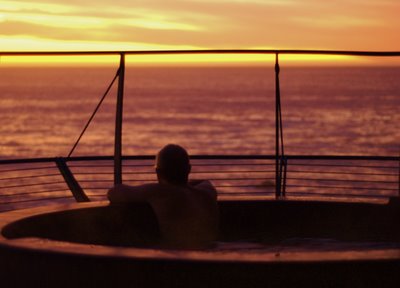
Poet and farmer Wendell Berry feels it is not enough to ask, "What can I do with what I know? without at the same time asking, How can I be responsible for what I know?"
The experience of wilderness can be a powerful one. How we bridge the experience of wild nature and our daily life is a critical inquiry. Our willingness to bring back from wilderness more than ideas and philosophies is vital to this bridging of worlds. We can look to the example of the natural world to see that plants and animals must practice their lifestyle. It would do little good for a plant or animal only to know theories about the niches it fills or where on the food chain it is. It is the lifelong practice, the active living and being what it knows, that keeps it alive and thriving. It is in practice and embodiment of what we discover that we humans find integration.
I am currently working as a facilitator of a strategic planning process with a group engaged in deeply inspiring work. This group has been earnestly asking both of Wendell Berry's questions. Last year this group won the California Governor’s Environmental and Economic Leadership Award for excellence in children’s environmental education. They are at the leading edge of teaching students of all ages about the environment and how we can live in a more balanced sustainable way. They are the Hilton Bialek Habitat at the Carmel Middle School. Here is a link to their website:
Hilton Bialek HabitatTaking inspiration from Wendell Berry and groups like the Habitat each of us, I believe, must ask ourselves, individually and as a collective, both of these questions in a sincere and compassionate manner… "What can I do with what I know?”
and "How can I be responsible for what I know?" Then as the answers come, the sometimes challenging and almost always enlivening, work of responsibly
practicing what we know comes.
Happy trails to you,
Steven

